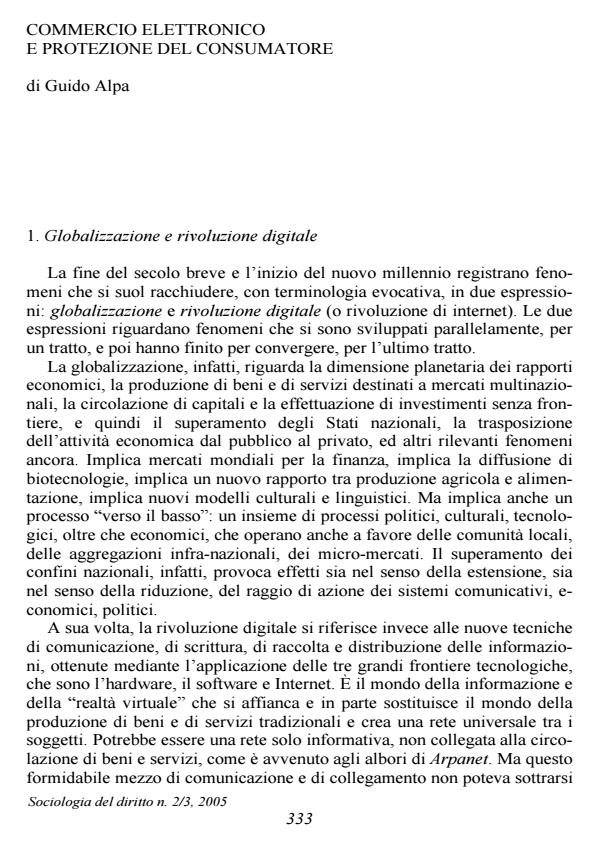Commercio elettronico e protezione del consumatore
Journal title SOCIOLOGIA DEL DIRITTO
Author/s Guido Alpa
Publishing Year 2005 Issue 2005/2-3
Language Italian Pages 18 P. File size 70 KB
DOI
DOI is like a bar code for intellectual property: to have more infomation
click here
Below, you can see the article first page
If you want to buy this article in PDF format, you can do it, following the instructions to buy download credits

FrancoAngeli is member of Publishers International Linking Association, Inc (PILA), a not-for-profit association which run the CrossRef service enabling links to and from online scholarly content.
The end of the last century and the dawn of the new millennium brought the phenomena defined as globalisation and the digital revolution. When national borders are dismantled, the effects are evident in the sense both of the extension and of the reduction of the radius of action of systems of communication, economics and politics. The concrete problem that occurs to the mind of the lawyer is that of the normative source responsible for the task of disciplining these phenomena. The web surfer needs to know the resulting rules. To these rules, other more general ones must be added to cover the protection of personal data. The harmonisation of legal rules is an indispensable precept for the creation of an efficient single market. Harmonisation to the maximum degree appears to be desirable in the interests of facilitating the flow of information about products and services and their appraisal on the part of consumers. At the same time, a minimum of harmonisation, leaving optional spaces entrusted to EU Member States, seems to be more advisable so that business still has the leeway to offer differentiated services that are better than the standard. A balanced solution could encompass two objectives: (i) to achieve maximum legal harmonisation both of terminology and of concepts and legal instruments, an objective pursued by attempts to draw up a European code of private law; (ii) to maintain differentiated treatment for forms of protection that tend to improve on the minimum threshold, together with differentiated treatment, dictated by market requirements, for the economic contents of pricing, risk, advantages etc.
Guido Alpa, Commercio elettronico e protezione del consumatore in "SOCIOLOGIA DEL DIRITTO " 2-3/2005, pp , DOI: